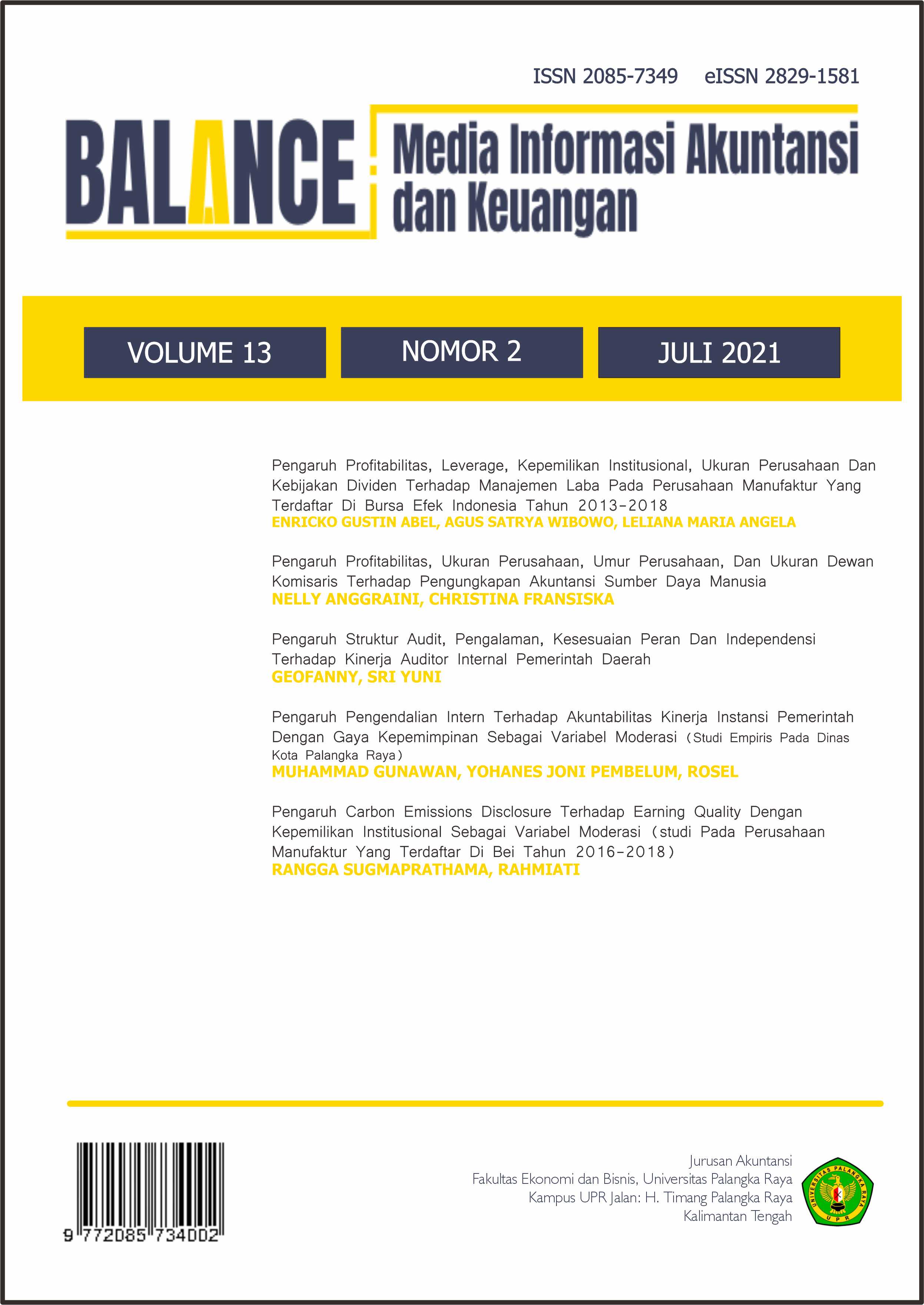PENGARUH PROFITABILITAS, LEVERAGE, KEPEMILIKAN INSTITUSIONAL, UKURAN PERUSAHAAN DAN KEBIJAKAN DIVIDEN TERHADAP MANAJEMEN LABA PADA PERUSAHAAN MANUFAKTUR YANG TERDAFTAR DI BURSA EFEK INDONESIA TAHUN 2013-2018
DOI:
https://doi.org/10.52300/blnc.v13i2.8483Keywords:
Earnings Management, Profitability, Leverage, Intellectual Ownership, Company Size, Dividend PolicyAbstract
The purpose of this study is to determine the impact of profitability, leverage, institutional ownership, company size, and dividend policy on earnings management by measuring discretionary reserves. In agency theory, the problem of agency is caused by the opportunistic behavior of agents, that is, the behavior of corporate executives who maximize their own wealth as opposed to their principals. Managers are tempted to select and implement accounting methods that demonstrate quality of performance in order to receive bonuses from their clients. The method used by management is called profit management. This kind of research is empirical. Sampling technique with targeted sampling. Data collection techniques through documented methods. The survey is conducted by the Indonesia Stock Exchange. Sampling is a manufacturing company listed on the Indonesian Stock Exchange from 2013 to 2018. The data analysis technique used is bilinear regression analysis. Use discretionary provisioning data to measure profit management and return on investment (ROI) to measure profitability. Use Ratio (DPR). As a result, we found that the company's variable profitability, institutional ownership and size adversely affected profit management. Leverage variables and dividend policies are actively based on profit management













